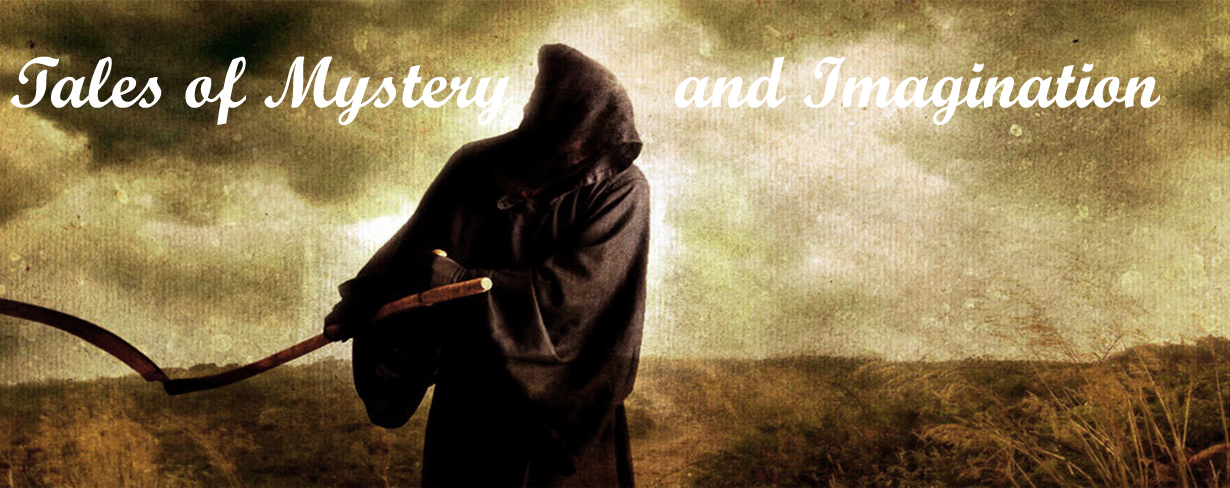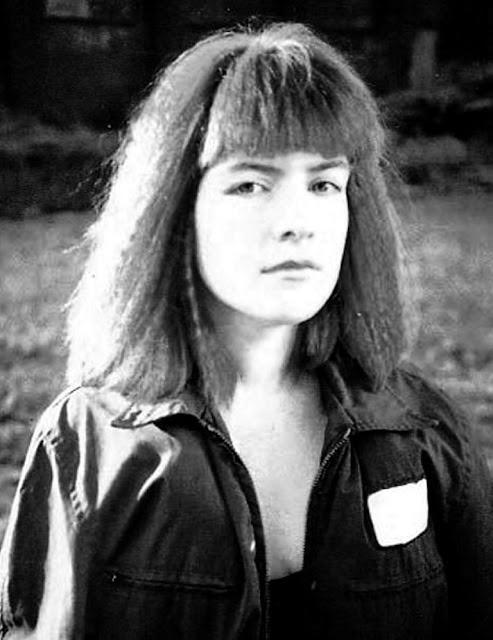Plodding toward the summit of Everest, high above Camp Three where every step felt like a life's work and every breath made her pray she'd be able to take the next one, Fria Canning saw her first dead body. It was a Japanese man in a red climbing suit, huddled in a fetal position beneath an outcropping of rock.
He must have been here since last season, maybe longer; at these altitudes it was almost impossible to retrieve the bodies of dead climbers, and the mountain became their sepulcher.
One of the man's mittens was gone, exposing a withered, clawlike hand. His face was as dark and scoured as the rock, a grimacing mask that no longer looked human. Fria had to unclip from the ropes to get around him. As she did, she said a quick silent prayer for him, a wish that the mountain spirit Chomolungma might welcome him, and then she kept climbing.
She didn't think of the corpse again until fifteen minutes later, because fifteen minutes later she was dying.
It happened so fast, only a heartbeat to break through the deceptive crust of snow, less than that to fall a hundred feet, and then the shock of impact. Fria felt something snap in her thigh, something give in her shoulder. She'd plunged into a hidden crevasse, landed on some sort of ledge deep within the ice. Her harness had been attached to the ropes, but either her carabiners or the harness itself had failed. She couldn't move to check; hot knives of pain sliced at her when she tried.
Fria tried to assess her situation. She lay on her right side facing a wall of ice that soared up nearly as far as she could see, only a faint gray smudge of daylight wavering at the top. The outer layer of the ice was translucent, webbed here and there with white fissures. Deeper in, the ice turned a delicate, almost metallic blue. Beyond that — as deep as Fria's eye could see — was an opaque core of darkness.
If she died here, the glacier would chew her up and eventually spit her out somewhere lower on Everest. She'd heard of it before, climbers disappearing into crevasses and getting churned out months or years later. Fria didn't want that. She'd rather stay on the mountain, become part of its vast system. The idea of leaving her imprint on systems had always appealed to her, had kept her home learning to talk to computers when other kids were cruising the mall, had inspired her to write the artificial intelligence program that financed this
climb.
She imagined her consciousness spiraling away from her body, into the multifaceted ice, into the matrix of the mountain. Dreamily, without fear or even surprise, she noticed that a man was coming through the ice to meet her.
He walked as easily as if through thin air, wearing a well-cut black suit and dark glasses like some CIA spook. His stride was neither hurried nor hesitant. Was this Death? She'd always imagined him as more colorful somehow. She flashed on the prayer flags that the Sherpas strung on the mountain for the wind
to harry; each snap of a brightly colored flag was a prayer to an ancestor. Fria felt sure that the man approaching her could have nothing to do with such matters.
When he reached her, he bent and offered her a hand. She grasped it without thinking, and the man pulled her up as easily as she herself might lift a toddler.
She sucked in her breath, anticipating the pain of her broken parts, but the pain did not come. She realized she was standing intact on the ice ledge, supporting herself on her own sturdy legs, and the man was watching her with the barest hint of a smile.
"Hello, Fria Canning."
"Hi."
"I'm Agent John Fine, and I'm very pleased to meet you. We admire your work
tremendously. AI isn't my particular specialty, but my colleagues say your Self
program is the most revolutionary piece of artificial intelligence work achieved
by any batt… any human."
"Well, thank you." Fria was certain now that she must be hallucinating.
Probably she was dying, random bits of memory spooling through her brain
like a buggy hard drive spitting out lines of nonsense code. What could she do
but play along? "I'm, uh, very proud of Self. It almost feels like I created
something that's more than the sum of me."
"Of course it is more than the sum of you." A trace of irritation crept into the
man's voice, but he smoothed it over at once. "Fria, would you like to get out
of this crevasse? Would you like to summit Everest?"
"I don't think that's in the cards."
"It can be. Do you want it?"
She laughed. "What are you, the Devil? Is this my chance to sell you my soul
for another thirty or forty years on stinky old Planet Earth? I don't think so,
Mister."
84820430.007.png
"What would the Devil want with an artificial intelligence program, Fria?"
"Help him recruit the damned, maybe? I don't know. Forget it. Fuck off."
The man took a step backward into the ice, and at once Fria was lying on the
ledge again, limbs bent in ways they shouldn't be, the pain red and pounding
and a hundred times worse than before. She began to cry from the
relentlessness of it, and soon her sobs turned into retches.
"Die deep in the ice then, if you like. It makes very little difference to me
either way. But I'm not the Devil, or any other such silly human bogeyman,
and all I want from you is something you would have done anyway."
"What?" she managed to spit out.
"Finish the new AI program you began work on before you left for Nepal. We
will contact you when it's completed, and we will pay you very handsomely for
it."
"Honest?" she said, absurdly.
"Honest."
"You got it."
And then with no sense of transition she was back on the surface of the
mountain, within sight of Camp Four at the base of the South Col. Her limbs
were whole and strong, her gear undamaged, her climbing harness hooked onto
the ropes. The whole thing might never have happened. In fact, it couldn't
have. She was climbing without bottled oxygen, after all; she must have
slipped into hypoxia, and her air-starved brain had taken her on one hell of a
trip. Though every cell of her body ached, she'd never felt more intensely
alive.
Fria started toward Camp Four, where her Sherpa team would have hot tea and
a dry tent ready. The next day just before noon, she stood upon the summit of
Everest, one foot in China and the other in Nepal.
....................
She'd been staring out the window above her desk for nearly an hour, not
seeing the fields of tall grass and summer wildflowers that surrounded her
house. She was picturing mountains.
With a shake of her head, Fria brought herself back to reality and forced
herself to look at her computer screen. It was filled with lines of code that no
longer made sense to her. She didn't know why, but she just couldn't work on
this program anymore. Maybe it had too many associations with the climb,
with the accident she'd had… or, rather, the accident she imagined she'd had.
Fria knew she couldn't have survived the kind of fall she remembered, let alone
have gotten herself out of the crevasse and continued on to the summit.
Therefore, she'd been hypoxic… perhaps even had a touch of cerebral edema
84820430.001.png
… and hallucinated the whole thing.
She was proud of having summited, but it upset her to think about Everest
now. The summit was not all she'd thought it would be. The peak of her life,
literally the highest point she would ever achieve, was over. Traveling back
through Namche Bazaar, Kathmandu, London, New York, home, she'd felt a
curious, flat depression.
She decided to put the new AI program aside. Her savings account was still
healthy, and it wasn't as if she had promised the program to anybody.
The knock came two days later, catching her in her underwear, drinking cold
coffee and trying to make a dent in her huge backlog of e-mail. She struggled
into a ratty bathrobe and headed for the door.
She didn't recognize the man at first. With his dark suit and spook shades, he
looked as incongruous on her front stoop as he had a hundred feet down in a
glacier.
"Fria Canning. Agent John Fine." He offered a hand which she was too
confused to shake. "I'm sure you remember me."
"Not really, Mister, uh…"
"Agent. Agent Fine. We met under rather uncomfortable circumstances…
circumstances I'm sure you wouldn't want to repeat. I'm here about the AI
program."
"The new one?"
Fine's silence was confirmation enough.
"I'm afraid I won't be completing that one. I've moved on to other things, and
I'm not sure what business it is of yours anyway."
"We had an agreement, Miss Canning."
Then it all came back to her: the crevasse, the pain of her broken body, the
searing cold. The promise she had made to the man who walked out of the ice.
"I can't do it," she whispered. "It makes me think too much of… of…"
"Of this?"
Fine's body was changing, glittering, a mass of proliferating crystals seeming to
burst from his mouth, chest, abdomen. Ice. Ice coming out of his body,
advancing like a speeded-up film of glacial encroachment. Ice touching her,
surrounding her. Ice tightening around her and cracking her bones.
"We hate it when our batteries give out early," she heard Fine say, and then the
ice covered her face and she knew no more.
84820430.002.png
...............
The coroner stepped back from the autopsy table shaking his head.
"Damnedest thing. I don't understand it."
His assistant shrugged. "What? All those broken bones, looks like she was
beaten to death."
"I don't know if she was beaten or not. The injuries are more consistent with a
fall, but she was found in her living room… where the hell did she fall from?
Anyway, the injuries didn't kill her."
"What then?"
The coroner looked out the window for a long moment before answering.
"This woman died of hypothermia."
The window in the morgue was small, high, and dirty, but through it the
coroner and his assistant could plainly see the sun and sky of a perfect July
day.


No comments:
Post a Comment